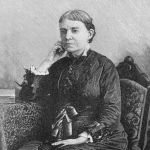might have been.
Certainly these ashes might have been pleasures.
Pilgrims on their way to the Holy Places remark
this place. Isn’t it plain to all
that these mounds were palaces? This was once
It was measured by the Lord and found wanting.
It was measured by the Lord and found wanting,
destroyd by the angels that inhabit longing.
Surely this is Great Sodom where such cries
as if men were birds flying up from the swamp
ring in our ears, where such fears that were once
desires walk, almost spectacular,
stalking the desolate circles, red eyed.
This place rumord to have been a City surely was,
separated from us by the hand of the Lord.
The devout have laid out gardens in the desert,
drawn water from springs where the light was blighted.
How tenderly they must attend these friendships
or all is lost. All is lost.
Only the faithful hold this place green.
Only the faithful hold this place green
where the crown of fiery thorns descends.
Men that once lusted grow listless. A spirit
wrappd in a cloud, ashes more than ashes,
fire more than fire, ascends.
Only these new friends gather joyous here,
The world like Great Sodom lies under Love
and knows not the hand of the Lord that moves.
This the friends teach where such cries
as if men were birds fly up from the crowds
gatherd and howling in the heat of the sun.
In the Lord Whom the friends have named at last Love
the images and loves of the friends never die.
This place rumord to have been Sodom is blessd
in the Lord’s eyes.



















Comment form: